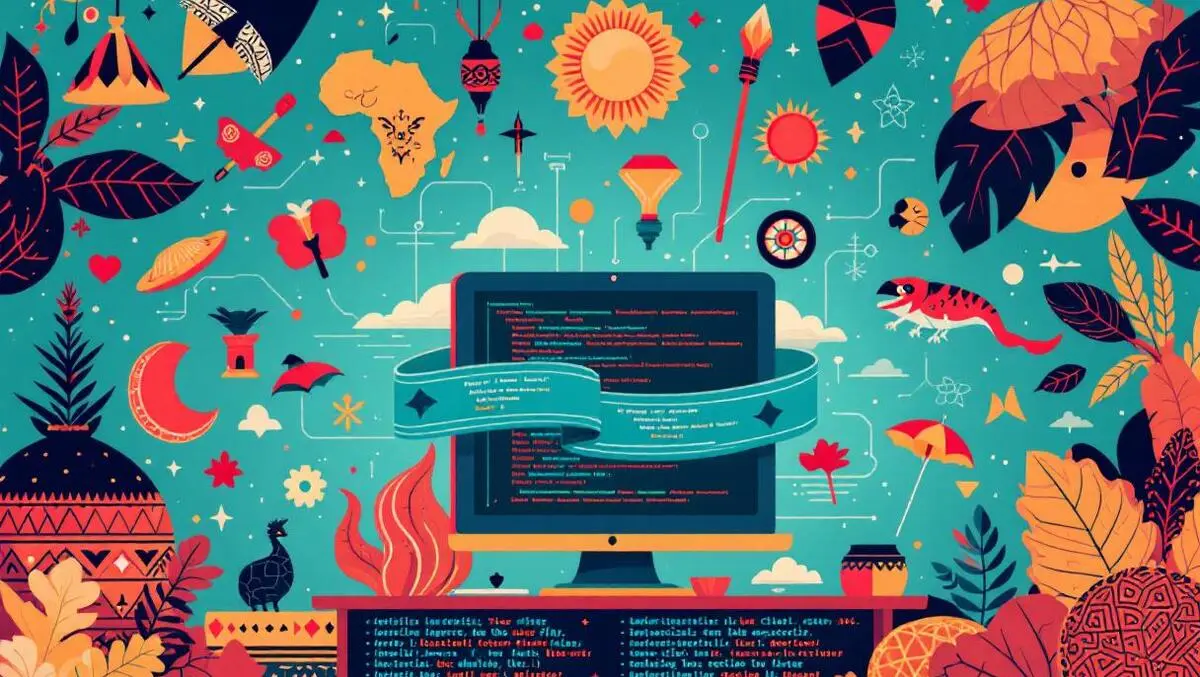
Wikimedia project boosts software for endangered languages worldwide
A transnational initiative coordinated by Wikimedia Deutschland has completed the first phase of a project aimed at supporting software development for underrepresented language communities in Indonesia, Africa, and Brazil.
The "Software Collaboration for Wikidata" project seeks to preserve endangered languages and enhance access to knowledge for communities whose languages are less visible online. The project has been supported by the Arcadia Fund, which has provided both financial support and expert guidance.
Local development focus
Local software teams in Indonesia, Nigeria, Brazil, and Ghana have worked in partnership with Wikimedia Deutschland to create technological solutions intended to make it easier to edit Wikidata and add language data, sometimes called lexicographical data. Wikidata, managed by Wikimedia Deutschland since 2012, now comprises a knowledge graph containing over 117 million entries which connects information in many languages for both human and machine use. The platform is maintained by a global community of over 12,000 active volunteers.
Tools to support language diversity
One of the main outcomes from Indonesia is Lexica, a tool developed by the Wikicollabs software team. Lexica is intended to help users add words from their languages to Wikidata in a structured manner, and it is accessible even to those without prior knowledge of linguistics or data modelling. Currently, it supports 32 languages, including seven local languages such as Javanese, Banjar, and Minangkabau.
"True simplicity of a tool means focusing only on the essentials. By keeping our community in mind, we create tools that help people to work easily, carefully, and error-free." - Raisha Abdillah, Project Lead at Wikicollabs
In Nigeria, the Igbo Wikimedians User Group has focused on building technical capacity in Africa through its Wiki Mentor Africa training programme. This effort aims to enable African contributors to develop and enhance Wikidata tools tailored to their languages and requirements. Through initiatives such as hackathons, mentoring, and training, Wiki Mentor Africa has reached over 1,300 community members.
"Like Wikipedia, Wikidata thrives on the participation of a community. The Wiki Mentor Africa project closes the gap by training Africans to develop, improve, and maintain the tools behind Wikimedia projects like Wikidata." - Tochi Precious, Project Coordinator at Wiki Mentor Africa
Projects in Brazil and Ghana
The Wikimedia Brasil team has been working on a new version of the QuickStatements editing tool. This tool allows batch edits to Wikidata and the upcoming version 3.0 is designed to provide a simpler, more accessible, and more robust experience for users making large-scale changes.
In Ghana, the One Click Info team, in partnership with the Dagbani Wikimedians User Group, is developing a multilingual browser extension. This extension will provide short, reliable summaries from Wikidata entries. For instance, when a user highlights an unfamiliar term on a web page, they can instantly access an explanation from Wikidata in their preferred language.
Addressing gaps in online language representation
Wikidata's structure allows information to be used not only by people but also by digital systems and artificial intelligence. Most current digital applications, including generative AI, mainly function for widely used languages. According to the human rights organisation The Why, 89% of all web content is in just 10 languages, even though there are more than 7,000 languages spoken globally. Research from the Internet Society Foundation estimates that language barriers prevent 20% of the world's population from accessing online information.
The Wikimedia project is addressing this disparity using localised approaches and a decentralised development model.
"When we develop technological solutions together with the local communities, we create tools that honestly meet the needs of people around the world. This not only strengthens local language communities but also the entire global Wikimedia Movement - which is the backbone of free knowledge. When everyone can add and use data in their own language, knowledge is truly created for everyone," says Maria Heuschkel, Project Manager at Wikimedia Deutschland.
Future plans
After the successful completion of the first phase, the project aims to scale and further professionalise the decentralised teams during its second phase. Project managers are currently seeking new funding to support ongoing activities. The long-term objective is to entrust software development to local communities to ensure a robust and diverse infrastructure for free knowledge.


